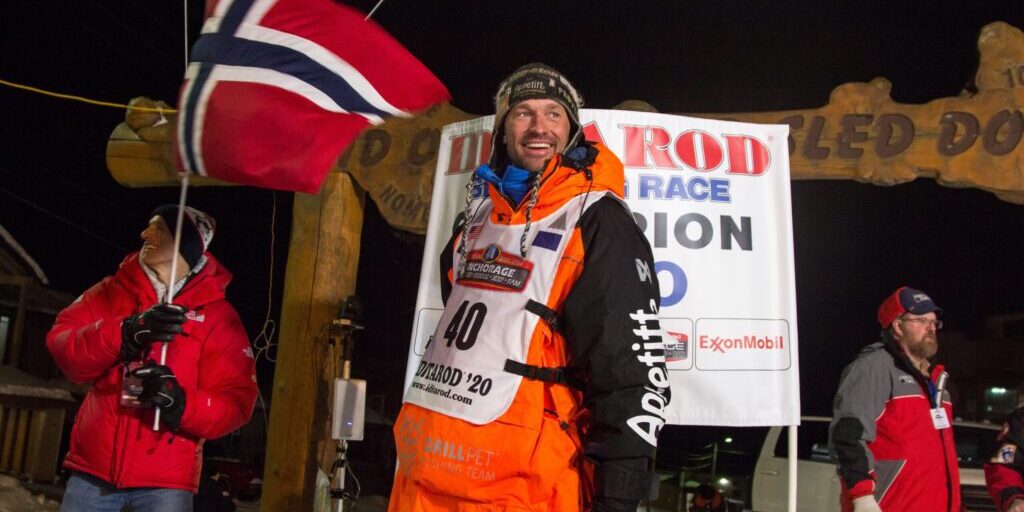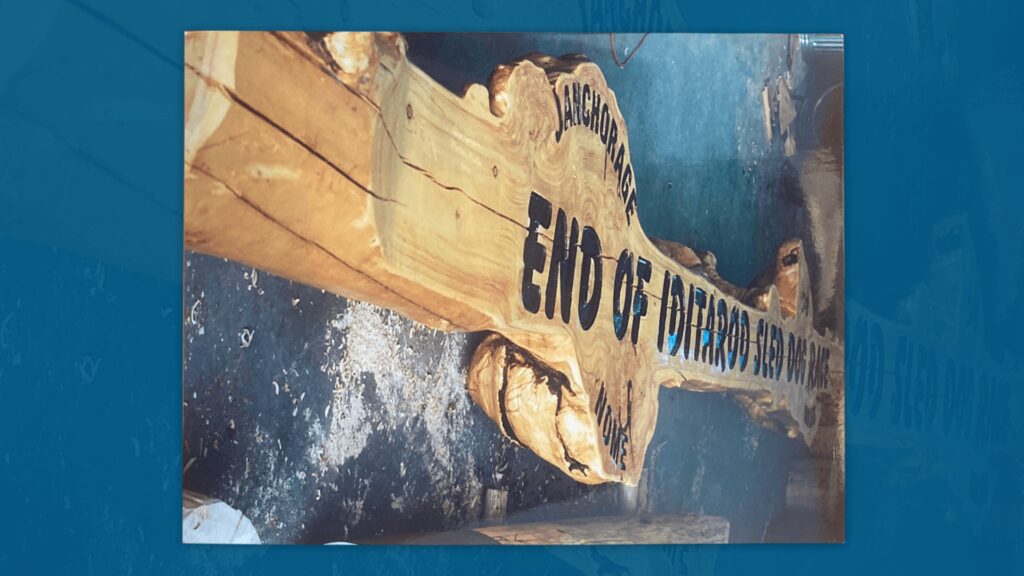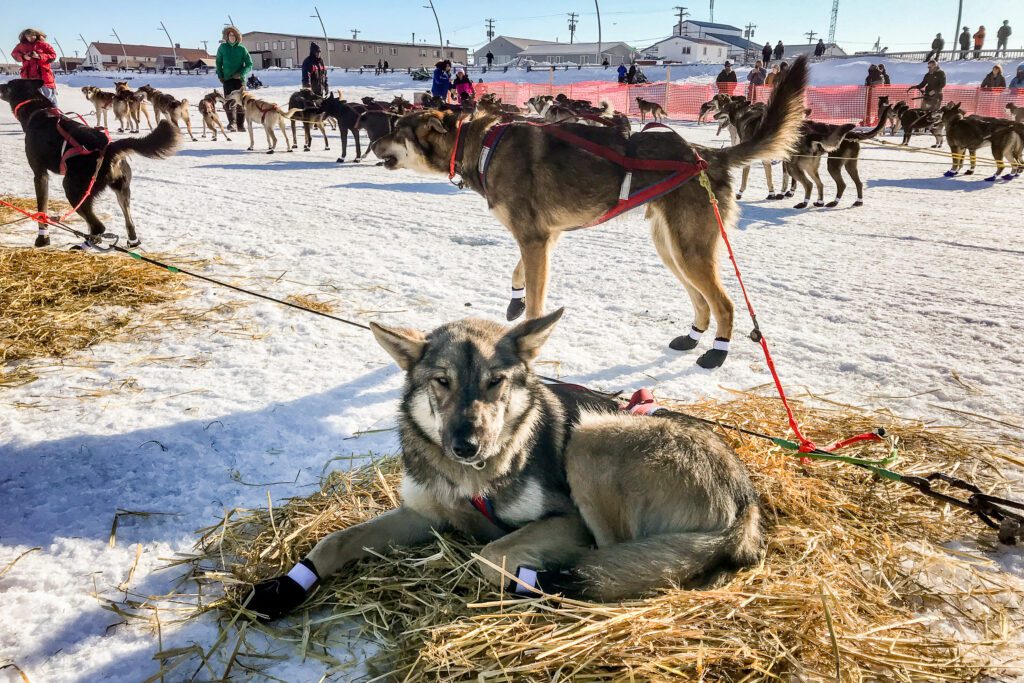The Iditarod has a new race champion: Norwegian Thomas Waerner arrived under the Burled Arch in Nome at 12:37 Wednesday morning to claim his first win.
He arrived with a team of 10 dogs with tails up, looking alert, and continuing to leap in harness even after arriving. Waerner’s leaders for the majority of the 1,000-mile race were Bark and K2, who both were honored with ceremonial wreaths on the winners’ podium early this morning.
“Checker: Thomas, we want to welcome you to Nome, in 9 days, 10 hours, 37 minutes, and 47 seconds. Welcome to Nome, and congratulations!
Waerner: AYYY!”
Though his name may be new for many Alaskans, 46-year-old Waerner has won Norway’ top races, including two of the biggest races in 2019, Femundløpet and Finnmarksløpet. He lives in Torpa, Norway and runs an electrical company. He and his wife have five kids.
Waerner arrived to an enthusiastic – though far smaller than usual – crowd on Nome’s Front Street. Waerner’s wife Guro, had expected to greet him at the finish line, but she left early to return to Norway due to COVID-19. Due to travel restrictions in Europe, Waerner may be delayed in returning home. Iditarod CEO Rob Urbach told KNOM Tuesday that race staff would try to expedite each mushers’ final vet check in Nome before getting them and their team on the next cargo flight out of town.
“Well I don’t think I will get home, in a while, so that’s going to be… next week. There will be some problems getting home.”
Mushers typically meet a city full of tourists, busy restaurants, craft fairs, and a rowdy nightlife, but most events in Nome this week are cancelled. Even the race’s finishers banquet has been postponed.
Waerner has only ran the Iditarod one other time, in 2015, in which he earned Rookie of the Year honors. Ever since a marathon 12-hour run from Kaltag to Unalakleet, Warner has been in control of the race, running 30 miles or more in front of his nearest competitors. The new race champ told a cluster of reporters that decision was one of his riskier ones.
“I heard on the weather forecast that it was going to get warmer, so I decided to take a long run from Kaltag to Unalakleet. It was a long run and it can take a bit of the speed out of the team, but they kept up really good after. That’s the chance you take, but they did good. And they were performing, and their average speed actually on that stretch increased…”
Waerner was the first to leave White Mountain at 1:35 Tuesday afternoon when he set off on the final 77 miles to Nome. He had a five-hour lead over Mitch Seavey, the second musher to arrive in White Mountain. His final race time was nine days, ten hours, and 37 minutes.
On a year with trench-deep snow across the Alaska Range and a soft, warm trail along the Yukon River, a dog team team with strength and endurance bested those with top-end speed. Waerner’s team was able to physically power their way to a win.
“The dogs are the performance athletes, we are the mushers and we get the credit and everything, but the dogs are incredible athletes. Every time I look at the team it’s just amazing how they can perform, how they are able to do it, and being happy about it. Every time I stop with this team, they are pulling the hook and I had to find trees to stop many times. I couldn’t stop them to give them snacks.”
Waerner is the third Norwegian musher to win the race. The others are Robert Sorlie and Joar Leifseth Ulsom.
The Iditarod started before Alaska had a positive case of COVID-19, and each day has brought more precautions to rural checkpoints. With professional sports on hiatus and schools out of session, the Iditarod is one of the only significant sporting events to continue.
For his first-place finish, Waerner wins 51-thousand dollars and a new truck. With the Chrysler dealership in Anchorage pulling their sponsorship of the race earlier this week, Waerner may be the last Iditarod winner to receive a prize vehicle for a while.
The next musher expected to cross the finish line under the burled arch in Nome is three-time champion Mitch Seavey.
Image at top: Musher Thomas Waerner from Norway won the 2020 Iditarod in Nome. Photo: Kjersti ‘KJ’ McElwee, KNOM.







